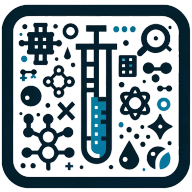6 When Drug Testing Policies Influence Career Decisions
Drug testing policies in the workplace have become a pivotal factor in career decisions for many professionals. As companies reevaluate their stance on substance screening, a shift towards more relaxed approaches is attracting top talent and sparking ethical debates. This evolving landscape is reshaping hiring practices and highlighting the importance of trust, privacy, and workplace autonomy in modern employment.
- DPC Practice Prioritizes Trust Over Invasive Testing
- Relaxed Drug Policies Attract Top Talent
- Drug Testing Sparks Ethical Workplace Debates
- Privacy-Focused Companies Appeal to Job Seekers
- Targeted Drug Testing Reshapes Hiring Practices
- Workplace Autonomy Influences Career Choices
DPC Practice Prioritizes Trust Over Invasive Testing
I once walked away from a corporate healthcare position because their invasive drug testing policy felt more like surveillance than sensible safety measures. The experience reinforced why I eventually founded my Direct Primary Care (DPC) practice—traditional healthcare systems often prioritize liability over trust, creating barriers between doctors and patients. In DPC, we build relationships based on transparency and mutual respect, not fear-based policies that assume the worst about people. When patients know their doctor isn't bound by corporate mandates or insurance reporting requirements, they're more likely to discuss sensitive health issues honestly, including substance use concerns. This open dialogue allows for better preventive care and early intervention rather than punitive measures. DPC physicians can focus on treating the whole person, addressing root causes of health issues without the adversarial dynamics common in traditional employment-based healthcare. That's how care is brought back to patients.
Relaxed Drug Policies Attract Top Talent
Strict drug testing policies are causing a significant shift in the job market. Many talented individuals are choosing to work for companies with more relaxed policies. This trend is particularly noticeable in industries where drug testing is not directly related to job performance or safety.
Companies known for strict policies are finding it harder to attract and retain top talent. Those with more lenient approaches are gaining a competitive edge in recruitment. Employers should carefully consider the impact of their drug testing policies on their ability to attract skilled workers.
Drug Testing Sparks Ethical Workplace Debates
The implementation of drug testing in workplaces has sparked intense ethical debates. Many employees feel that such policies infringe on their personal freedoms and right to privacy. On the other hand, employers argue that these tests ensure a safe and productive work environment.
This conflict of interests has led to tensions in many organizations. Some companies have started to reevaluate their stance on drug testing to maintain a positive workplace culture. It's crucial for both employees and employers to engage in open discussions about these policies and find a balance that respects individual rights while ensuring workplace safety.
Privacy-Focused Companies Appeal to Job Seekers
Increasingly, employees are placing a higher value on their personal privacy than on traditional corporate benefits. This shift in priorities is causing many professionals to reconsider their career choices. Companies that respect employee privacy, including having less invasive drug testing policies, are becoming more attractive to job seekers.
This change in perspective is forcing employers to rethink their approach to employee benefits and workplace policies. Organizations that adapt to this new reality are likely to have an advantage in recruiting and retaining talent. Job seekers should carefully evaluate a company's stance on privacy when making career decisions.
Targeted Drug Testing Reshapes Hiring Practices
Drug testing requirements are reshaping hiring practices across various industries. Companies are having to balance legal compliance, workplace safety, and attracting talent. Some sectors are moving towards more targeted testing approaches, focusing on safety-sensitive positions rather than blanket policies.
This shift is changing the dynamics of job interviews and the onboarding process. Candidates are now more likely to inquire about a company's drug testing policies during the hiring process. Human resource departments should be prepared to address these concerns and explain the rationale behind their policies to potential hires.
Workplace Autonomy Influences Career Choices
Professionals are increasingly seeking autonomy in their career choices, including the freedom from invasive workplace policies. This desire for independence is influencing job seekers to prioritize companies that offer more flexible work environments. The trend is particularly strong among younger generations entering the workforce.
Companies that offer autonomy, including more relaxed drug testing policies, are seen as more progressive and employee-friendly. This shift is forcing traditional corporations to reassess their policies to remain competitive in the job market. Job seekers should consider how much they value workplace autonomy when evaluating potential employers.


